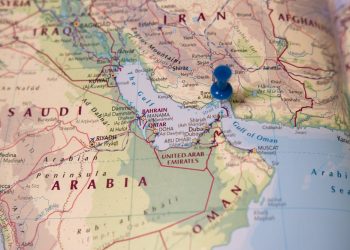Coal is an important, widely-used source of energy. However, its carriage as a cargo is associated with a number of hazards and it must be carried according to the relevant regulatory requirements.
According to the Britannia Club, due to its origins as a carbonaceous sedimentary rock formed by geological processes applying pressure to the remains of plant material over time, coal comes in many different forms and the term covers a relatively wide range of cargoes.
Therefore, its properties and the associated hazards also vary significantly depending on the specific form of coal being carried as cargo.
However, all coal cargoes require certain precautions upon loading, and monitoring during voyage.
Coal regulation
As a potentially hazardous bulk cargo, Britannia notes that it is essential that coal is always loaded, carried and discharged in accordance with the requirements of the International Maritime Solid Bulk Cargoes (IMSBC) Code.
These requirements should be closely followed by both ship and shore management.
IMSBC classification
Coal is classed as IMSBC Group A and B, which are defined as follows:
- Group A: Cargo which may liquefy if shipped at a moisture content in excess of the transportable moisture limit (TML);
- Group B: Cargo which possesses chemical hazards.
Coal can be classed as Group B (only) in one of the following cases:
- By a test determined by the competent authority in the country of origin, or
- When the particle size distribution fulfils specific criteria defined in the IMSBC Code
In the latest edition of the IMSBC Code, coal is also categorised as a solid that can be combustible (CB), self-heating (SH), evolving flammable gas when wet (WF) and/or corrosive (CR).
Liquefaction
With the exception of coal cargoes classed as Group B only, the cargo declaration should be accompanied by documentation relevant to the moisture content (MC) of cargo and its TML, issued by an entity that is recognised by the competent authority of the port of loading.
The IMSBC Code section 4 should be consulted for specific requirements in this regard but these include:
- The TML certificate should contain or be accompanied by the testing done for determination of TML. The shipper is responsible for ensuring that a test to determine the TML is conducted within six months of the date of commencement of cargo loading.
- The shipper is also responsible for ensuring that sampling and testing for the MC is conducted as near as practicable to the date of commencement of loading. The interval between sampling/testing and the date of commencement of loading should never be more than seven days.
- The MC certificate should be accompanied by a statement by the shipper that the MC is, to the best of their knowledge and belief, the average moisture content of the cargo at the time of declaration.
- The ship’s Master should be provided with a document issued by the competent authority at the port of loading stating that the shipper’s procedures established for sampling, testing and controlling the MC of cargo on board ship (to ensure that the MC is less than its TML) are approved and the implementation checked as per section 4.3.3 of the IMSBC Code.
The IMSBC Code stipulates that if a Group A cargo has been exposed to significant rain or snow between the time of testing and the date of completion of loading, the shipper is responsible to ensure that the MC of the cargo is still less than its TML, and that evidence of this is provided to the ship’s Master as soon as practicable.
If the cargo is loaded onto the ship from barges, the shipper should include procedures to protect the cargo on the barges from any precipitation and water ingress.
Cargo declaration
The shipper’s cargo declaration must be provided in accordance with the requirements of the IMSBC Code, in particular with regard to the cargo properties and the associated hazards.
The declaration must include a section clearly stating whether the cargo of coal is liable to emit methane, or self-heat. In such cases, the Special Precautions in the IMSBC Code for “coals emitting methane” and “self-heating coals,” respectively, must be taken.
The IMSBC Code also notes that the shipper must provide the Master with the characteristics and the recommended safe handling procedures for the loading and transport of the coal cargo.
Finally, Britannia says that the majority of ships carry coal cargoes without an incident, despite the potential hazards. The IMSBC Code provides detailed requirements and recommendations for the carriage of coal, addressing the risk of fire or explosion.
However, the Master, officers and all the personnel involved should be fully familiar with these requirements.





























































